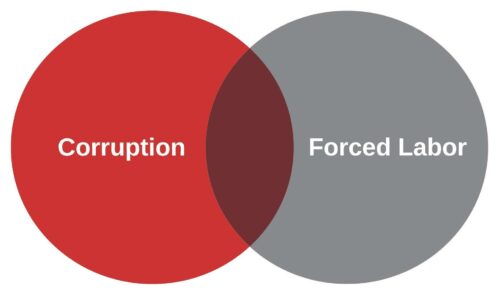Corruption, Recruitment, and Forced Labor
Why examine these topics together?
Public corruption in foreign worker recruitment processes exposes migrant workers to the risk of forced labor and human trafficking. However, corruption and forced labor are rarely addressed together. The Foreign Corrupt Practices Act (FCPA) can be used as a tool to jointly combat these abuses and uphold accountability for human trafficking, one of the fastest growing global criminal enterprises.
Our new e-learning course, Nice Products: A Story of Corruption, Recruitment, and Forced Labor, examines these links.
This course aims to inform government enforcement agencies and other civil servants, public policy advocates, civil society organizations, and academics on the connections and potential role of the FCPA in countering forced labor in supply chains. It is also relevant to the private sector as it highlights vulnerabilities in foreign worker recruitment that contribute to forced labor and potential liability under the FCPA.
In this free resource, we tell a fictitious story about a manufacturing company in Malaysia, as it seeks to hire foreign workers. Follow along Nice Products’ foreign worker recruitment story to examine how the informal networks that often characterize that process can serve as an enabler of forced labor.

What is the FCPA?
Each year, over $2.6 trillion is stolen through corruption worldwide, according to the UN.
The Foreign Corrupt Practices Act (FCPA) represents one of the most powerful anti-corruption laws in place globally. It prohibits the payment of bribes to foreign officials in obtaining or retaining business and has extraterritorial jurisdiction to combat corruption and bribery internationally.
